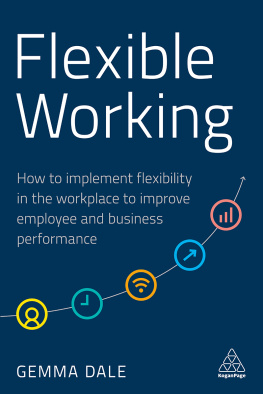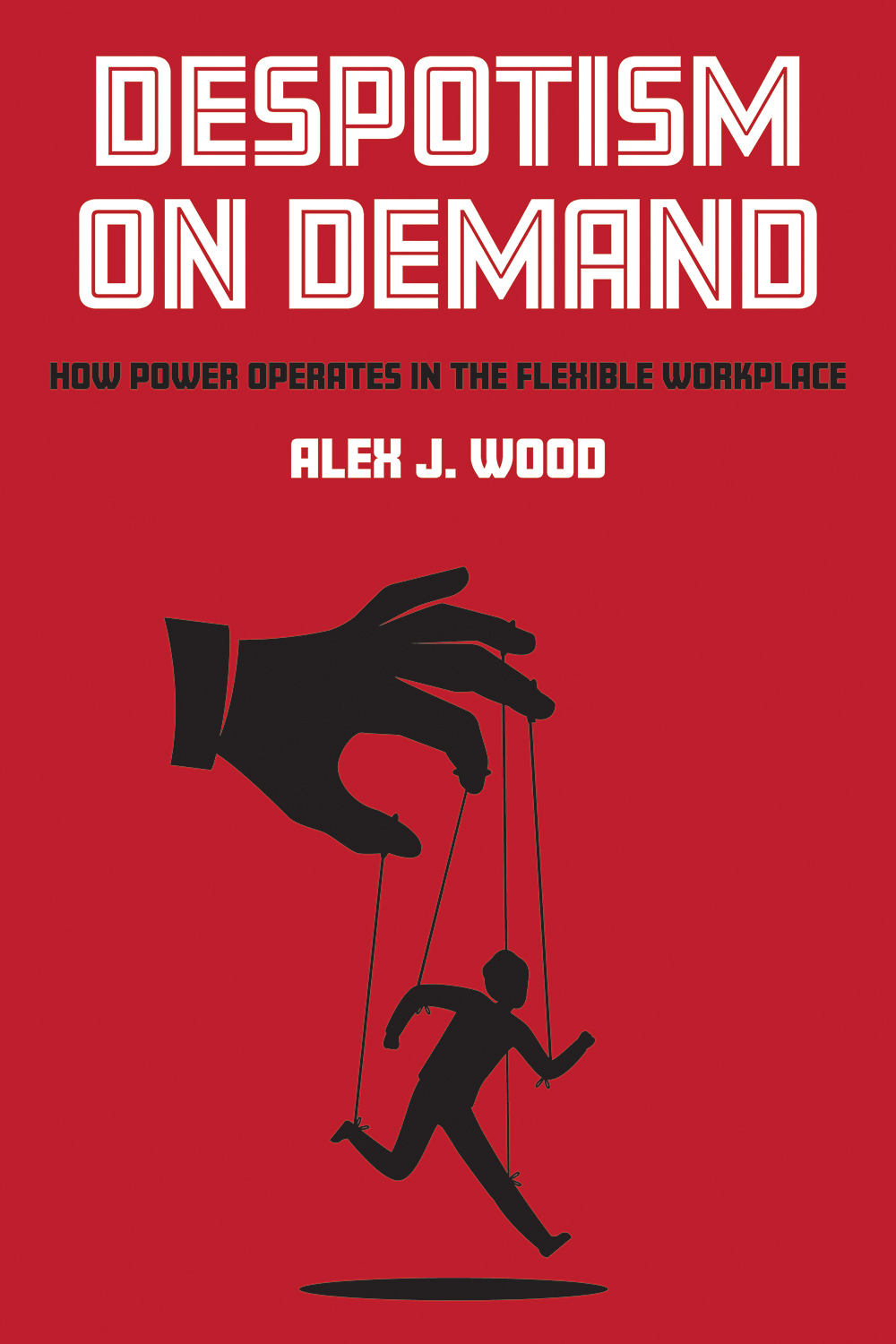Alex J. Wood
Being humiliated, harassed, and abused by managers, subject to dangerous work conditions such assaults on the dignity, safety, and autonomy of workers are of concern to egalitarians over and above issues of pay and benefits. Fundamentally, egalitarians care about eliminating oppressive social hierarchy, including relations of domination and subordination under which subordinates can be arbitrarily subject to humiliating and oppressive conditions, and arbitrary restraints on their freedom.
Elizabeth S. Anderson, Where Despots Rule,
interview in Jacobin, June 29, 2017
Acknowledgments
Special thanks are due to Brendan Burchell and William Brown at the University of Cambridge for four years of help, support, and constructive criticism which have hugely strengthened this book. Thanks are also due to Michael Burawoy, Judy Wajcman, Huw Beynon, and Paul Edwards for showing interest in my ideas and taking the time to discuss my research. I would also like to thank Catherine Malone, David Sutcliffe, Christabel Buchanan, Torsten Geelan, Anna Wolmuth, James Taylor, Ian Buchanan, and Richard Armstrong, all of whom have read various drafts of the chapters that make up this book and have provided me with useful feedback and encouragement and, most of all, helped me clarify and communicate my ideas. I am grateful to Vili Lehdonvirta and the Oxford Internet Institute for providing me the time to finish this work. I would like to acknowledge SAGE, which published two of my articles that parts of the Introduction and chapters 3, 4, and 5 draw and expand on. These two articles are:
Wood, Alex J. Powerful Times: Flexible Discipline and Schedule Gifts at Work. Work, Employment and Society 32, no. 6 (2018): 10611077.
Wood, Alex J. Flexible Scheduling, Degradation of Job Quality and Barriers to Collective Voice. Human Relations 69, no. 10 (2016): 19892010.
I would also like to acknowledge Wiley, which published my article that parts of chapters 2 and 6 draw and expand on. This article is:
Wood, Alex J. Networks of Injustice: Worker Mobilisation at Walmart. Industrial Relations Journal 46, no. 4 (2015): 259274.
Finally, but most importantly, I am indebted to the workers and trade unionists who opened up their lives to me and gave me so much of their time. Without their generosity this book would consist of blank pages.
FLEXIBLE DESPOTISM
An Introduction
The On-Demand Economy
The winds of change are swirling through the economies of North America and western Europe. New economic processes are taking hold in the spaces opened up by the steady decline of collective workplace regulation. No longer is working time understood as a standard, stable eight hours, five days a week. Instead, working time is flexible, on demand, and 24/7. Jobs are fragmented into tasks, or broken up into gigs, with many workers contracted to a job on a zero-hour, at-will basis. Employees schedules are adjusted in real time to match changing demand. Alternatively, self-employed workers are individually contracted via labor platforms to each specific task according to an employers need. Consequently, many workers are increasingly employed flexibly, while others may not even have an employment contract at all, and instead be classified as self-employedand yet have their labor controlled by a platform. As we shall see in the coming chapters, even workers with standard, full-time, permanent contracts can experience high levels of insecurity as a result of flexible scheduling within this new temporal order.
As a result, the benefits and drawbacks of flexible scheduling have been widely debated. These discussions, however, have tended to focus on issues of job quality, work-life balance, and well-being. This book goes further, by drawing attention to important but under-researched issues of managerial power and workplace control. This is necessary, as it is only when we understand paid work as a power relationship that we are able to see how precarious scheduling constitutes flexible despotisma new regime of control within the workplace. Flexible despotism represents a new domain of inequality, in which the postindustrial working class increasingly suffers a scheduling nightmare.
The Drivers of the On-Demand Economy
Across the United States and Europe, between a sixth and a fifth of employees experience precarious scheduling, that is, fluctuating working time over which they have little control.
The shift in employer behavior toward on-demand work has been facilitated by a number of institutional changes aimed at the creation of a 24/7 economy. These transformations include the decline of collective regulation of working time and shifts in legal and normative regulations. Additionally, there has been an explosion of data that enables employers to accurately model demand, and that therefore makes the close matching of labor supply (including real-time adjustments) to demand more profitable. For example, a Financial Times article on September 7, 2016, noted that it is now possible to combine weather, online traffic, and other signals with previous sales data in order to forecast future customer footfall. Meanwhile, in many countries, austerity has placed the public sector under pressure to contain labor costs through greater temporal flexibility.
Temporal Firm Flexibility
It seems that the birth of the on-demand economy occurred in the early 2000s as firms increasingly experimented with a variety of mechanisms to enable greater temporal flexibility. As a consequence, precarious scheduling, in terms of workers having variable schedules that they do not control, nearly doubled in the United States between 1997 and 2004, rising from 6.6 percent to 11.5 percent.
These flexible employment practices include zero hour and short hour contracts; flexible contracts that guarantee a minimum number of hours but no fixed scheduling pattern; gig economy labor platforms; and management-run labor matching reviews, whereby a firm reviews its staffing needs and as a result may shift its entire workforces schedules. However, the temporal fragmentation of work increases exponentially the organizational complexity of workforce management. This complexity acts to limit the extent to which temporal flexibility can be adopted by firms. Previously, managers had to maintain a core of workers with stable schedules on whom they could rely to cover the central operational functions of the business. However, the connectivity provided by smartphones and other portable and wearable devices means that this barrier to flexibility is beginning to be overcome, through the algorithmic management of workers.
This trend is most apparent in the algorithms of online labor platforms such as Uber, Deliveroo, TaskRabbit, Handy, Airtasker, Fiverr, and Upwork, all of which use algorithmic rating systems to control and discipline labor, and to ensure the efficient matching of demand and supply. Workers not deemed productive enough according to an algorithms parameters find that work quickly dries up, and in some cases they are even deactivated (i.e., fired) from the platform.








